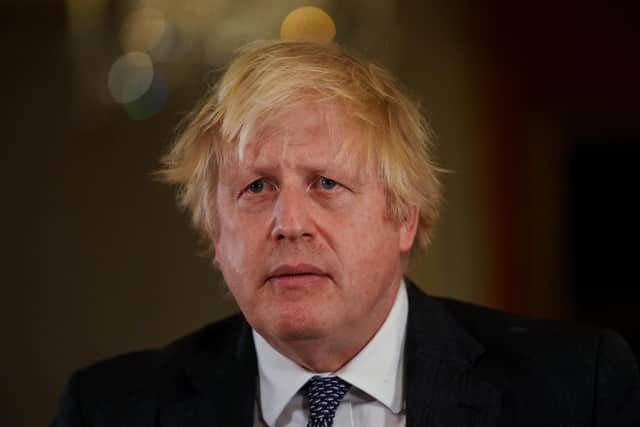Wakefield by-election a test on who voters trust to level up Britain - Justine Greening
In so many ways, the two constituencies couldn’t be more different – Wakefield is northern and urban, relatively young and diverse. Tiverton and Honiton is southern and rural with an older demographic and less ethnicity. Yet they were both part of Mr Johnson’s 2019 General Election landslide win, with major swings towards the Conservatives. Staggeringly, less than three years later, both could be lost in next week’s by-elections.
Political commentators sympathetic to the Government could put it down to voter mid-term election discontentment and ‘Partygate’ fallout. But these by-elections matter much more than that.


Advertisement
Hide AdAdvertisement
Hide AdFirstly, with their significant electorate differences, Wakefield and Tiverton and Honiton represent the full spectrum of Mr Johnson’s Government’s majority.
Wakefield is one of a large group of formerly Red Wall Labour turned Conservative seats that were pivotal in Mr Boris Johnson’s famous 2019 victory.
The Prime Minister won in 2019 with support from a broad coalition of voters that these two contrasting constituencies represent the opposite ends of. Lots of MPs in Mr Johnson’s Parliamentary Party will look at either of them and see parallels to the electorate in their own seats, which they worry could mirror similar results the next time their voters have a chance to cast a vote. For a Prime Minister who’s already had a difficult confidence vote just two weeks ago, with over 40 per cent of his Parliamentary Party voting against him, it would be a further setback.
Secondly, the Wakefield by-election in particular matters because it is the first skirmish in a political battle which will define the next General Election and who wins it – the battle for levelling up.
Advertisement
Hide AdAdvertisement
Hide AdAt the time of the last General Election in 2019, Mr Johnson rightly put levelling up high on his political agenda, whilst Jeremy Corbyn’s Labour Party ignored it. The resounding answer from the British people on whether we should be levelling up places like Wakefield was yes we should.
Now, for communities like Wakefield, the issue that matters is how, not whether, we should level up. Which party has the most compelling, credible offer on levelling up will decide the outcome of the next General Election, whenever it comes.
And in the last few months the Labour Party has shown signs of understanding this. Up until recently, it felt like Labour in Westminster spent more time arguing about the semantics of social mobility, equality and levelling up than it did working out how to deliver this key priority for our country. Yet Labour mayoral successes in 2022 came through candidates that set out their stall to communities on what levelling up meant at a regional level. And fundamentally levelling up is an inequality issue, a traditional political stomping ground for Labour.
Conservative MPs should be concerned that earlier this month the Shadow Levelling Up Secretary, Lisa Nandy, proclaimed that Labour will be a “Levelling Up Government”. It suggests that at the next election both main parties will be engaged in the battle for hearts and minds on levelling up.
Advertisement
Hide AdAdvertisement
Hide AdMoreover, the bleak outlook of the coming months means that the spectre of a period of levelling down not levelling up is a real prospect. We face a cost- of-living crisis from punitive levels of inflation and rail strikes. Economists talk of our economy potentially entering a period of ‘stagflation’, the toxic combination of high inflation and low growth. The last time Britain faced these sorts of challenges was the 1970s. Our economy was termed the ‘sick man of Europe’. Industrial action was so rife that the then Prime Minister Ted Heath called a general election to sort out, as he put it, ‘who governs Britain’.
Today, the question isn’t ‘who governs Britain’, but ‘who levels up Britain’. For Mr Johnson, retaining the support of new Conservative voters in previously Red Wall Labour seats is about offering a policy agenda on levelling up of real substance. It is about reestablishing a sense of trust and competence in Government that means often sceptical voters, feeling let down time after time, believe it will actually now be delivered.
Ted Heath got his electoral answer on ‘who governs Britain’ when voters evicted him from Downing Street in 1974 handing the keys to a Labour Government led by Harold Wilson. With strikes crippling the country, he had lost credibility on the vital issue of the day.
Next Thursday we get the first electoral signs of whether, on the vital issue of our day of “who levels up Britain’, voters in Wakefield still think the most credible answer is to vote Conservative. Even if, as polls suggest, a Labour victory in Wakefield does happen, the prize of levelling up will still be all to play for. But the rules of the political game have changed from 2019, and it will be voters here in Yorkshire that have the first say.
